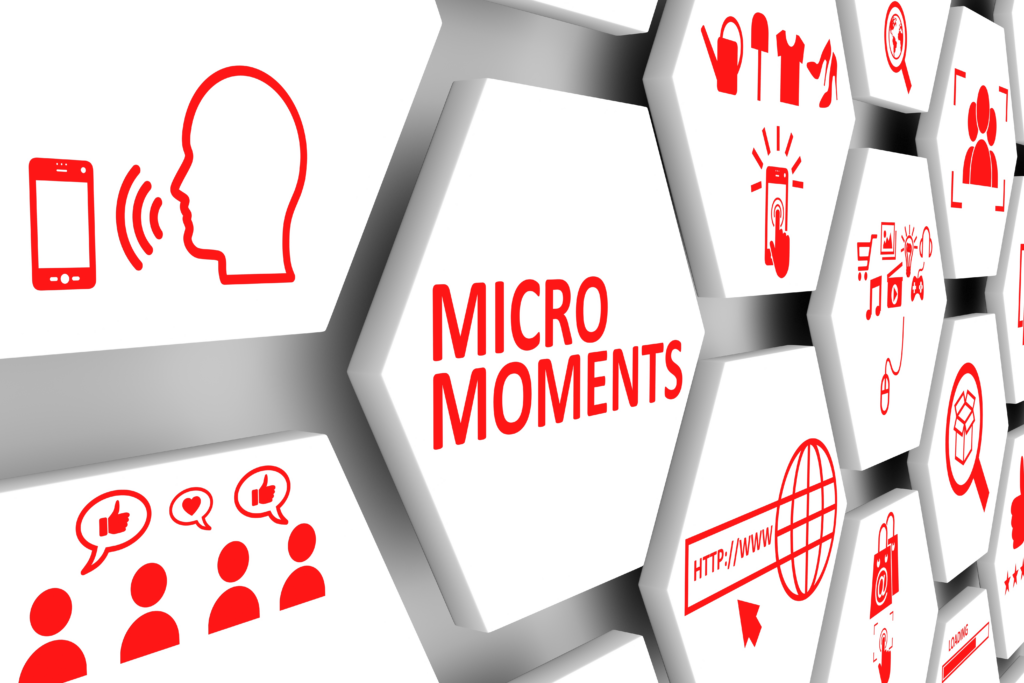The average consumer’s attention span has shrunk dramatically in the digital world. Enter micro-moments—those brief, intent-driven interactions when consumers turn to their devices to act on a need: learn, do, buy, or discover. For marketers, capturing these moments is no longer optional; it’s essential.

Understanding Micro-Moments
Coined by Google, micro-moments describe the seconds-long intervals when a user searches for immediate solutions. These moments often occur on mobile devices, where consumers expect fast and accurate results. Whether finding a recipe, comparing product reviews, or locating the nearest store, these fleeting interactions are powerful decision-making touchpoints.
Why Micro-Moments Matter
How to Master Micro-Moments
Creating a Micro-Moment Strategy
To truly harness micro-moment power, brands must rethink how they approach marketing. The traditional model of long-term campaigns with static messaging is no longer enough. Today’s consumers demand relevance, speed, and personalization—delivered precisely when and where they need it. A strong micro-moment strategy begins with a mobile-first approach. Since most micro-moments happen on smartphones, your digital presence must be fully optimized for mobile users. This includes responsive website designs, intuitive navigation, and fast-loading pages. Even a few seconds of delay can mean losing a customer’s attention to a competitor.
Understanding the consumer’s intent is equally critical. Not all micro-moments serve the same purpose. Some are informational, such as searching for a quick tutorial, while others are transactional, like looking for the best deals on a product. Tools like Google Trends or predictive analytics can help brands identify common queries and tailor content accordingly. It’s also essential to maintain a consistent presence across multiple channels. Consumers often move fluidly between social media, search engines, and websites, so ensuring seamless messaging and accessibility is critical.
Creating concise, value-driven content that aligns with these micro-moments is another cornerstone of success. Bite-sized videos, infographics, and step-by-step guides often resonate more effectively than long-form content during these brief interactions. Additionally, real-time engagement tools such as live chat and push notifications can help brands stay connected to consumers at pivotal moments. For example, a travel app can notify users about discounted flights while they’re actively browsing destinations. By embedding these strategies into every stage of the customer journey, brands can transform fleeting micro-moments into opportunities for lasting engagement and loyalty.
Looking Ahead
Micro-moments represent more than just a marketing trend—they signify a fundamental shift in how consumers interact with brands. As technology continues to evolve, the importance of these brief, intent-driven interactions will only grow. Advancements in personalization, voice search, and augmented reality will shape the future of micro-moment marketing. AI-powered tools will significantly deliver highly personalized experiences, such as apps that predict a user’s needs based on their location or past behavior. For instance, a coffee shop app might suggest your favorite drink as you walk by their store, creating a perfectly timed opportunity for engagement.
Voice search will also become a key component of micro-moment strategies as devices like Amazon Alexa and Google Assistant become more prevalent. To stay competitive, brands must optimize their content for conversational queries and ensure their messaging is accessible through voice-activated platforms. At the same time, augmented reality is poised to redefine how consumers experience products. Imagine being able to visualize how a new sofa would look in your living room, all within seconds of searching for furniture online. These immersive experiences will add a new layer of immediacy and relevance to micro-moment marketing.
Emerging technologies like 5G will further enhance the speed and richness of these interactions, allowing for seamless video streaming and real-time engagement. Sustainability and ethical marketing will also become increasingly important as consumers grow more eco-conscious. Brands incorporating sustainability into their micro-moment strategies, such as highlighting eco-friendly materials during product searches, will stand out in a crowded market. Looking forward, hyperlocal targeting will enable businesses to connect with consumers on an even more precise level. For example, a restaurant might send a notification about lunch specials just as a customer enters the area. By embracing immediacy and focusing on customer-centric strategies, brands can turn these brief interactions into meaningful connections that drive loyalty and growth.
.